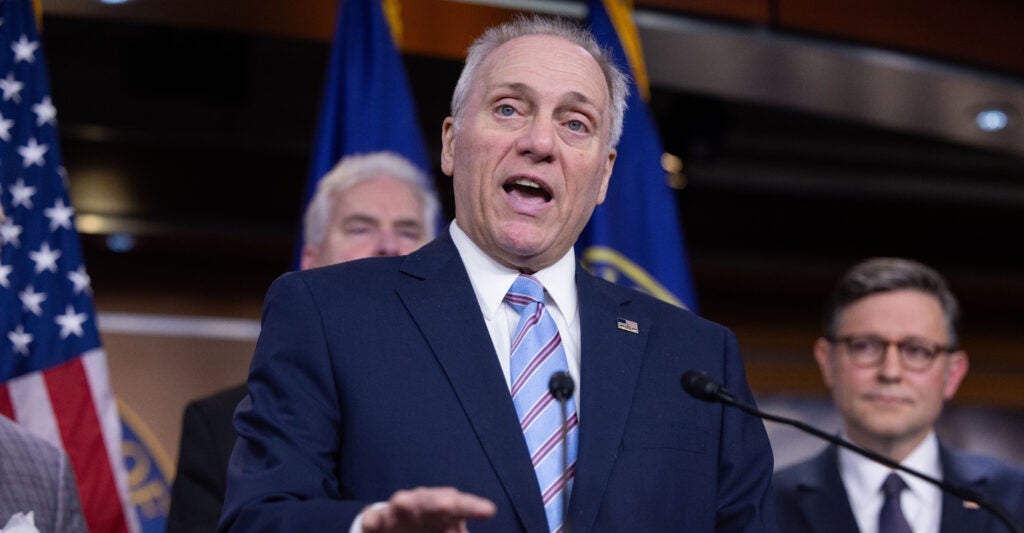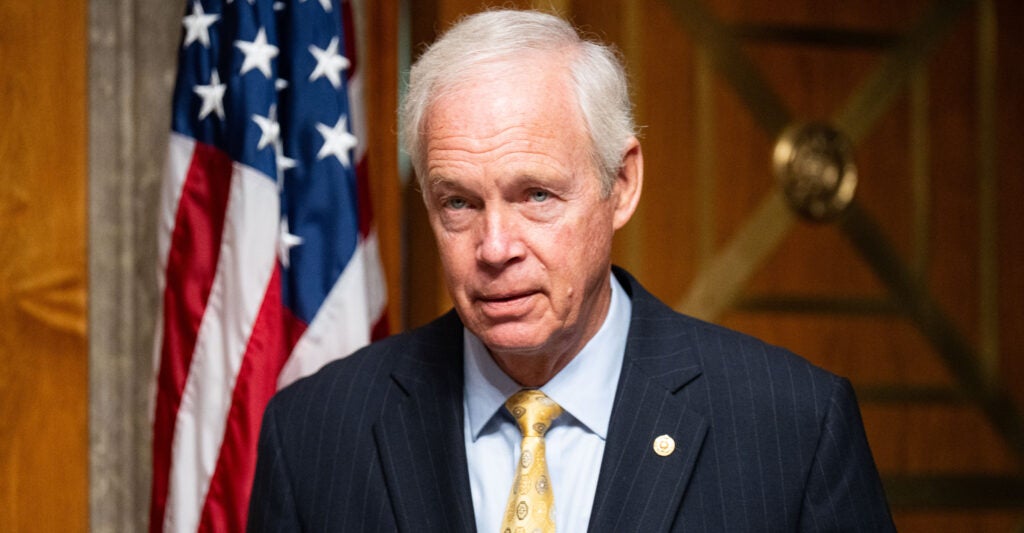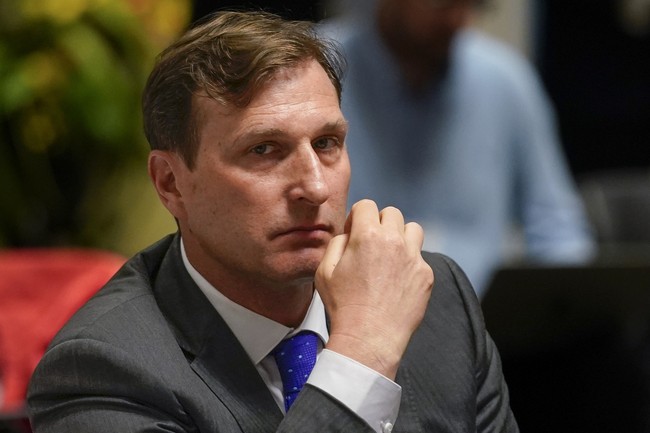House Republican leadership is facing a herculean task right now, as it seeks to appease various factions with strong opinions on the budget reconciliation bill: fiscal hawks, Medicaid defenders, and tax cut advocates.
Pleasing all of those groups would be an Olympian achievement, given Republicans’ narrow majority in the House of Representatives.
Speaker of the House Mike Johnson, R-La., is currently trying to iron out disagreements within the House Republican Party over taxation, Medicaid reform, and the general fiscal benefit of his “one big, beautiful” budget bill.
This bill would fulfill a number of President Donald Trump’s campaign promises, such as funding border security and extending his first term 2017 tax cuts.
House leadership suggested that they were coming close to consensus in the chamber at their Wednesday press conference.
“In every meeting … the Speaker of the House Mike Johnson has been about as patient of a man as I’ve seen,” said Majority Leader Steve Scalise, R-La.
 House Majority Leader Steve Scalise, R-La. (Nathan Posner/Anadolu via Getty Images)
House Majority Leader Steve Scalise, R-La. (Nathan Posner/Anadolu via Getty Images)“Listening to our members, and believe me—you know this—we have members who have a lot of different points of view … . But at the end of the day, we’ve all got to come together … . There are a lot of tough issues. Might be one remaining to solve, but we’ve gotten through every one of them,” Scalise said.
Scalise was most likely referencing negotiations over the cap for state and local tax (SALT) deductions.
Four House Republicans from New York have previously rejected the speaker’s offer of a $30,000 cap on the tax deduction—a policy that favors high-earners in high-tax blue states—as insufficient.
The leadership and a group of SALT advocates were still negotiating the cap as of early Wednesday afternoon.
House Fiscal Hawks: Find More Medicaid Savings
But SALT is not the only sticking point left to be resolved.
A handful of fiscal hawks in the House have expressed their dissatisfaction with the Energy and Commerce Committee’s reforms to Medicaid.
Those changes, such as requiring citizenship and income verification for Medicaid enrollees, are being framed by Freedom Caucus hard-liners as inadequate.
“The proposals put forth so far to eliminate fraud, waste, and abuse in the Medicaid program won’t do it,” said Rep. Andy Harris, R-Md., who chairs the conservative Freedom Caucus, in a Wednesday interview.
“They’re talking about a work requirement [for Medicaid eligibility], but not instituting it for four years,” he added. “… The bottom line: That doesn’t work.”
That’s a reference to the fact that the Energy and Commerce Committee’s proposed “community engagement” requirements for Medicaid do not kick in until 2029—after the 2028 presidential election.
But Harris is keeping the door open to negotiating a more hawkish budget.
“As long as we don’t increase the deficits, we’re willing to talk about anything. The problem is, the bill as it’s currently structured would increase the federal deficits for the first few years of the next 10. So, we can’t have that.”
Harris is not alone in leveling those criticisms.
For example, Rep. Chip Roy, R-Texas, who voted for a narrowly passed budget resolution back in May on the condition of aggressive deficit cuts, is also publicly framing the Medicaid reforms as inadequate.
If Reps. Thomas Massie, R-Ky., and Victoria Spartz, R-Ind.—both of whom voted against an April budget resolution—end up as nays in the next vote, then House Republicans’ math for passing the bill becomes difficult without appeasing Roy and Harris.
The Senate
This complicated game of consensus-building Sudoku has another round in the Senate.
Sen. Ron Johnson, R-Wis., wrote an op-ed for The Wall Street Journal saying that, unless Congress makes deeper cuts to spending, he “can’t support this bill as it’s currently being discussed and [doubts] that it will pass the Senate.”
In the Senate, where Republicans hold 53 of 100 seats, Sen. Rand Paul, R-Ky., has been a skeptic of the “one big, beautiful bill” concept from the start, and Sen. Mike Lee, R-Utah, has also called for deeper cuts than the ones offered.
 Sen. Ron Johnson, R-Wis. (Bill Clark/CQ-Roll Call via Getty Images)
Sen. Ron Johnson, R-Wis. (Bill Clark/CQ-Roll Call via Getty Images)Going too far in the direction of fiscal hawkishness, however, risks alienating senators who are wary of deep cuts.
Sen. Josh Hawley, R-Mo., for example, wrote an op-ed for The New York Times this week warning against deep Medicaid cuts.
Republican Sens. Lisa Murkowski of Alaska and Susan Collins of Maine have also defended programs that fiscal hawks in the House want to find big savings in—such as Medicaid and green energy subsidies.
Sen. Jim Justice, R-W.Va., has additionally made it clear that he wants his constituents’ Medicaid benefits protected.
Where Does House GOP Leadership Go From Here?
To be sure, the House Republican leadership has continuously defied the odds throughout the early budget process.
They have calmed fiscal hawks with promises of cuts and relieving Republican Medicaid champions by proposing reforms that mainly target benefits going to illegal immigrants and nonworking but able-bodied adults.
But finding a compromise that satisfies all those factions in Congress will be no easy task.
The hard deadline for passing a bill will likely come when the United States hits its current debt limit, and Congress will be forced to raise the debt ceiling.
The post Johnson Threads Needle in Stitching Together ‘Big, Beautiful Bill’ to Placate Factions appeared first on The Daily Signal.
.png)















 English (US)
English (US)